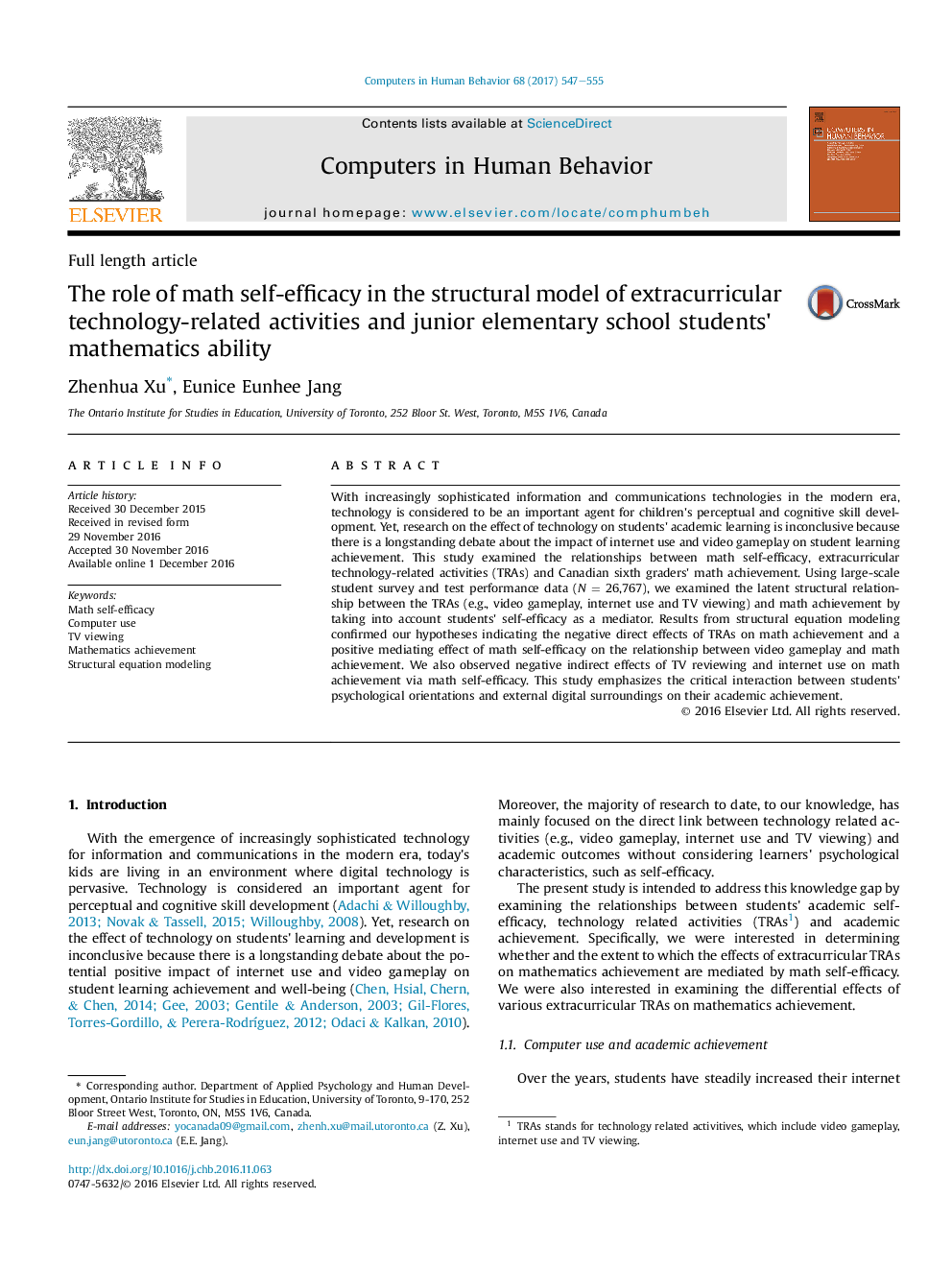| Article ID | Journal | Published Year | Pages | File Type |
|---|---|---|---|---|
| 4937713 | Computers in Human Behavior | 2017 | 9 Pages |
Abstract
With increasingly sophisticated information and communications technologies in the modern era, technology is considered to be an important agent for children's perceptual and cognitive skill development. Yet, research on the effect of technology on students' academic learning is inconclusive because there is a longstanding debate about the impact of internet use and video gameplay on student learning achievement. This study examined the relationships between math self-efficacy, extracurricular technology-related activities (TRAs) and Canadian sixth graders' math achievement. Using large-scale student survey and test performance data (NÂ =Â 26,767), we examined the latent structural relationship between the TRAs (e.g., video gameplay, internet use and TV viewing) and math achievement by taking into account students' self-efficacy as a mediator. Results from structural equation modeling confirmed our hypotheses indicating the negative direct effects of TRAs on math achievement and a positive mediating effect of math self-efficacy on the relationship between video gameplay and math achievement. We also observed negative indirect effects of TV reviewing and internet use on math achievement via math self-efficacy. This study emphasizes the critical interaction between students' psychological orientations and external digital surroundings on their academic achievement.
Related Topics
Physical Sciences and Engineering
Computer Science
Computer Science Applications
Authors
Zhenhua Xu, Eunice Eunhee Jang,
